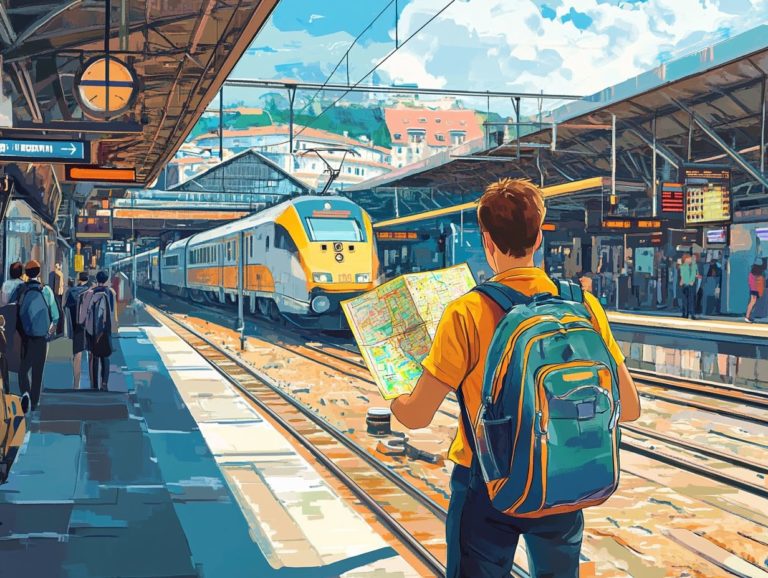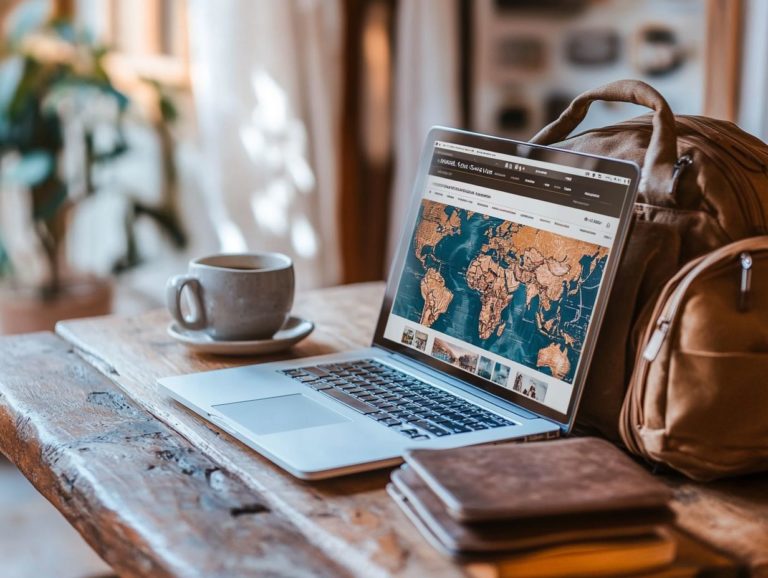Understanding Cultural Differences When Traveling
Traveling unveils a vast tapestry of experiences. Understanding cultural differences is essential for genuinely appreciating them.
Navigating diverse beliefs and customs, respecting social etiquette, and savoring local cuisines are all facets that elevate your journey. This guide delves into cultural norms, communication styles, and dining practices, offering you valuable tips to become a respectful traveler.
Embracing these differences can transform your adventures into unforgettable connections.
Contents
- Key Takeaways:
- Cultural Norms and Customs
- Communication and Language Differences
- Social Etiquette and Interactions
- Food and Dining Customs
- Tips for Embracing Cultural Differences
- Frequently Asked Questions
- What is the importance of understanding cultural differences when traveling?
- How can I prepare for cultural differences before traveling?
- What are some common cultural differences I may encounter while traveling?
- What are some ways to show respect for a country’s culture while traveling?
- How can I avoid offending locals with my behavior?
- What should I do if I unintentionally offend someone while traveling?
Key Takeaways:
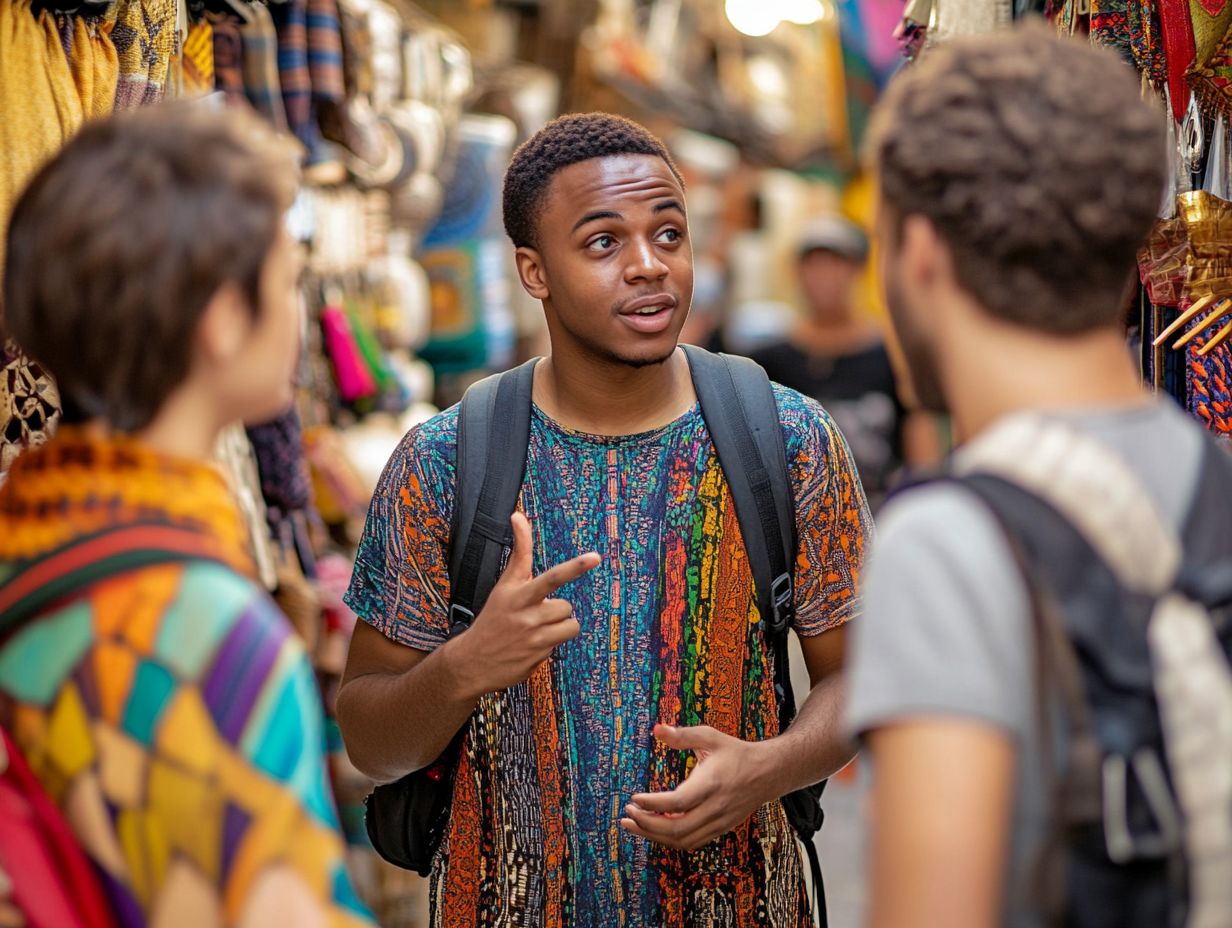
- Understanding cultural differences is crucial for respectful and enjoyable travel experiences.
- Awareness of different beliefs, customs, and communication styles can help mitigate misunderstandings and cultural faux pas.
- Respect for cultural differences extends to food and dining customs; be open to trying new dishes and respectful of local practices.
Why is it Important to Understand?
Understanding cultural differences can change your travel experience forever! It is vital for fostering your empathy and communication skills, especially in our increasingly interconnected world.
In today s global community, where travel exposes you to a myriad of cultures, acknowledging and respecting customs and traditions can significantly enhance your personal growth and cultural competence.
From Argentina to Japan, and from Greece to Tanzania, these rich cultural experiences not only broaden your horizons but also cultivate a deeper sense of awareness. This allows you to embrace cultural nuances with mutual respect.
Recognizing how power distance the way power is distributed in a society affects workplace relationships can dramatically impact your negotiations and collaborations, especially when working with multinational teams. For instance, in cultures with high power distance, like many Asian nations, hierarchical structures are firmly upheld, contrasting sharply with low power distance cultures such as those found in Scandinavian countries, where egalitarian principles reign.
Understanding dimensions like individualism versus collectivism can profoundly shape your interpersonal dynamics. In collectivist societies, community goals often take precedence over personal ambitions, fostering a strong sense of belonging but possibly creating tensions for those who are used to prioritizing their individual achievements.
These layers of understanding not only enhance your intercultural communication but also prepare you for success in global interactions, enriching both your personal and professional lives.
Cultural Norms and Customs
Cultural norms and customs are fundamental aspects of any society. They embody the values and traditions that guide individual behaviors and community interactions. Grasping these norms is essential for both travelers and locals, as it cultivates deeper cultural exchanges and fosters mutual respect among diverse cultures.
Whether you find yourself savoring local cuisine in Mexico or immersing yourself in a traditional festival in Greece, being attuned to these customs can greatly enhance your travel experience and elevate your cultural awareness.
Understanding Different Beliefs and Behaviors
Understanding the diverse beliefs and behaviors of various cultures is essential for truly appreciating the richness of cultural diversity. Each culture offers unique perspectives shaped by its history, religion, and social norms, which influence interactions and expectations in different contexts.
By actively engaging with these varied beliefs, you can cultivate cultural sensitivity and elevate your overall travel experience. For example, in many Asian cultures, people often prefer indirect communication, valuing harmony and respect over bluntness. This stands in stark contrast to Western cultures, where directness is frequently celebrated as a hallmark of honesty.
Recognizing these differences can significantly transform your social interactions. You might unwittingly offend someone by being too straightforward in an environment that prizes subtlety.
Customs, such as greeting rituals, also differ widely. While a handshake is a common practice in many Western cultures, bowing is the norm in Japan. These nuances highlight the importance of empathy and understanding, serving as your guide in navigating these complexities and fostering more meaningful connections across cultural divides.
Communication and Language Differences
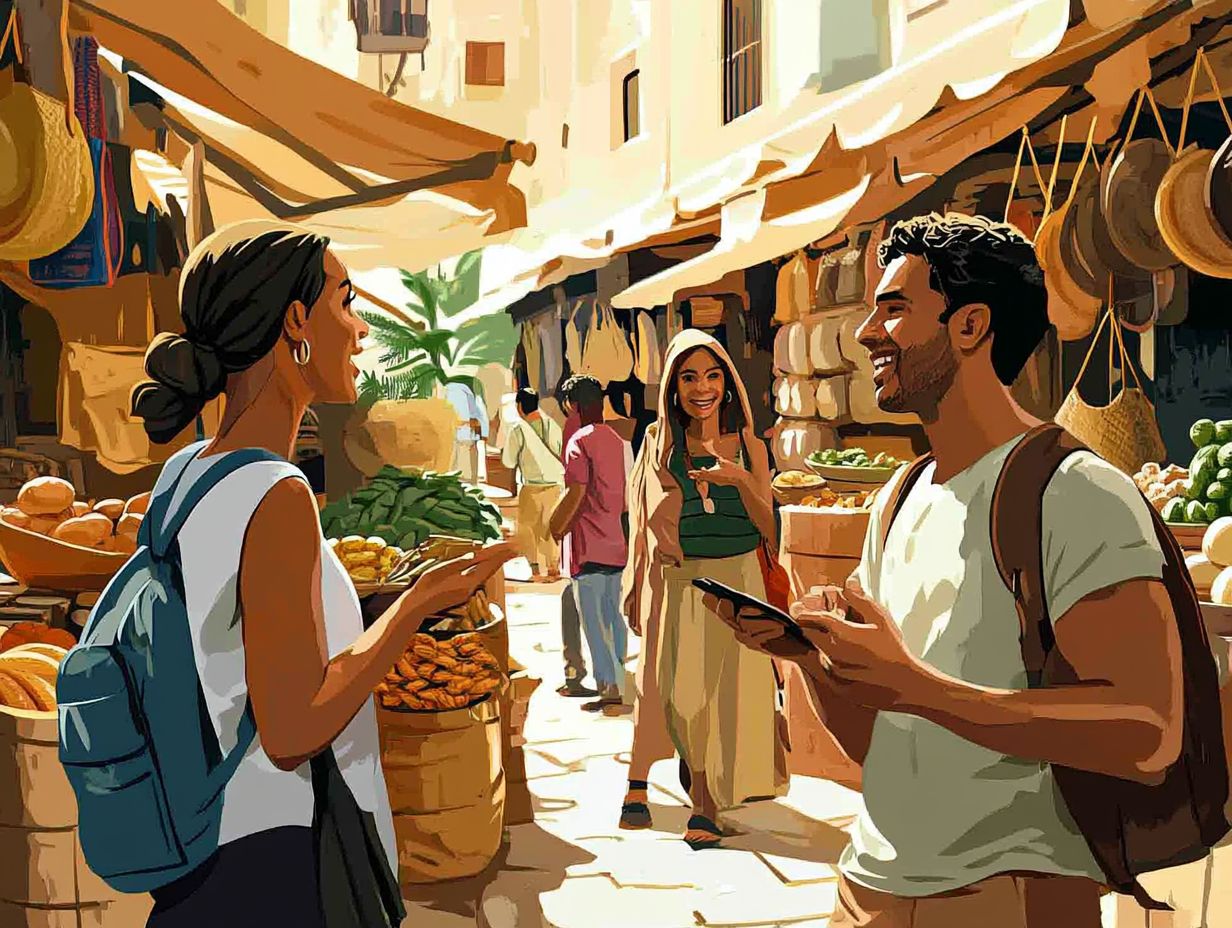
Communication and language differences significantly influence your interactions in diverse cultures. It’s vital for you to cultivate effective communication skills. While language barriers can impede cultural exchange, they also open doors to deeper relationships and greater understanding.
Mastering a few local phrases can truly transform your travel experience! Tuning into non-verbal cues, or ways people communicate without words, like gestures or facial expressions, can elevate your interactions and show genuine respect for the local culture.
Navigating language barriers is essential for any traveler like you who aims to truly connect with diverse cultures. Effective communication often transcends words, relying instead on gestures, expressions, and even technology to facilitate smoother exchanges despite linguistic hurdles.
By embracing patience and open-mindedness, you can transform these barriers into enriching experiences. To elevate your interactions, consider harnessing translation apps that can instantly convert conversations and texts into the language you need.
This makes it easy to ask for directions or order your meal without awkward guesswork. Learning a few key phrases or basic greetings in the local tongue can foster goodwill and establish rapport with locals.
Taking the time to familiarize yourself with local dialects will deepen your understanding and appreciation for the intricate nuances of communication in that region. By employing these strategies, you not only enhance your language skills but also boost your cultural competence, leading to journeys that are both immersive and unforgettable.
Social Etiquette and Interactions
Social etiquette embodies the manners and behaviors that are considered acceptable across various cultures. This serves as a vital component in nurturing positive interactions. By grasping these unwritten rules, you adapt more seamlessly to local customs and enhance your cultural sensitivity and awareness.
Whether you’re greeting someone in Japan or navigating a dining experience in Tanzania, recognizing and respecting social etiquette can profoundly elevate your travel experience. It helps foster harmonious connections.
Respecting Cultural Differences
Respecting cultural differences is essential for fostering understanding and harmony in our increasingly globalized society. By embracing cultural sensitivity and actively recognizing the unique customs and traditions of each culture, you cultivate meaningful relationships and enjoy richer travel experiences.
This respect enhances your interactions and contributes to a more inclusive global community. Take, for instance, your travels to India. Understanding the significance of the ‘Namaste’ greeting fosters a sense of mutual respect, reflecting an acknowledgment of the other person’s dignity and spirit.
Similarly, when you engage with the Maori in New Zealand, participating in a ‘hongi’ the traditional greeting that involves touching noses can deepen your connections and demonstrate appreciation for their rich heritage. These simple acts not only enrich your personal interactions but also pave the way for deeper intercultural relationships.
Allow yourself to grow by learning from diverse perspectives and practices.
Food and Dining Customs
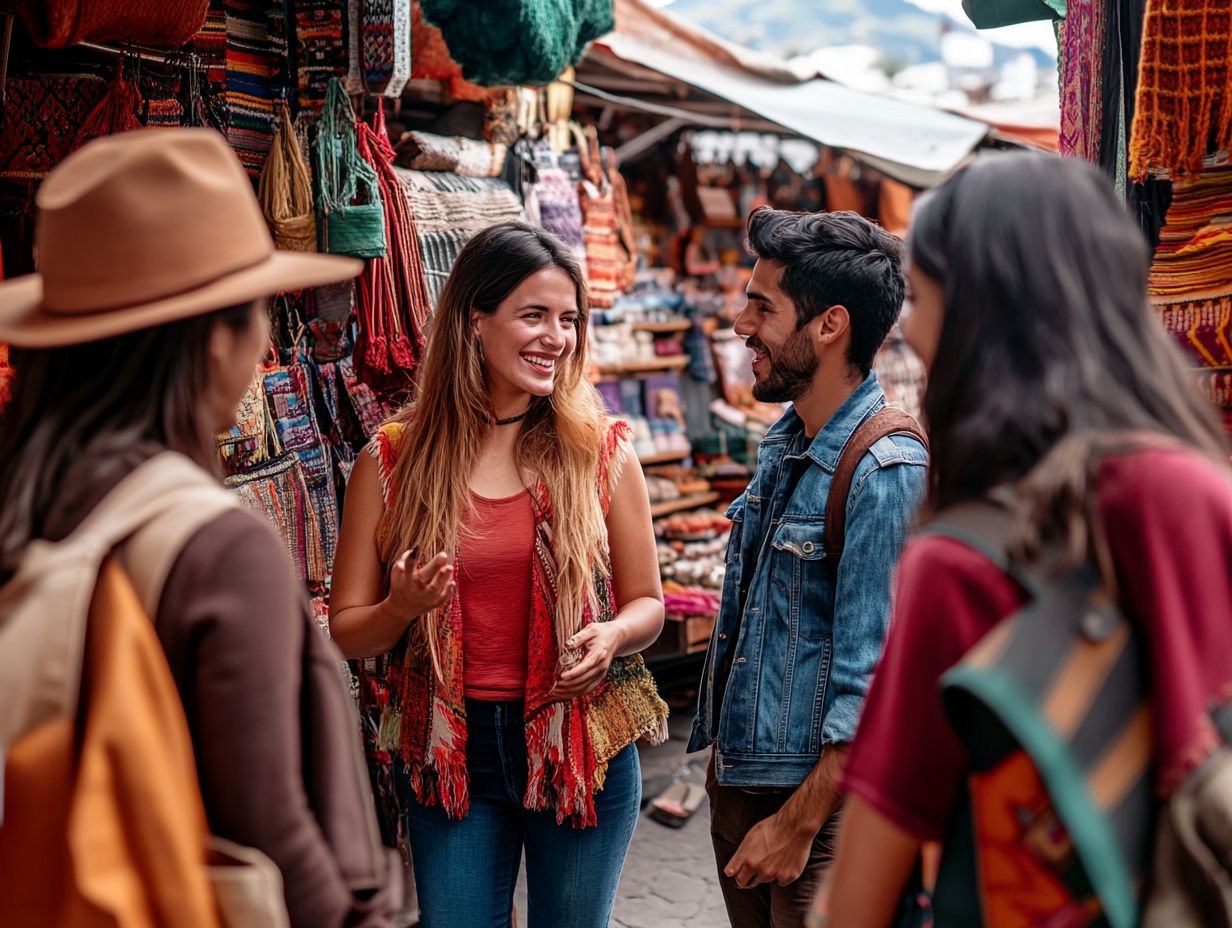
Food and dining customs serve as a cornerstone of cultural identity. They provide a distinctive glimpse into the traditions and values of various cultures. By understanding these customs, you not only elevate your travel experience but also foster meaningful cultural exchanges through culinary exploration, which means trying out local foods and cooking styles.
Whether you’re savoring street food in Mexico or engaging in a traditional tea ceremony in Japan, being mindful of dining etiquette can profoundly enhance your interactions. It also deepens your appreciation of the local culture.
Exploring Local Cuisine
Exploring local cuisine is one of the most delightful ways to immerse yourself in a culture and appreciate its culinary practices. Each dish tells a story, reflecting the region’s history and geography. These unique cultural influences shape the food we enjoy. By engaging with local dishes, you can enjoy a richer experience that deepens your appreciation for diverse cultures.
This interaction unveils the intricate relationships between communities and their environment. Factors like climate and agriculture significantly influence culinary practices. For example, savoring pasta in Italy provides insights into the country s farming traditions, while indulging in spicy curry in India showcases the vibrant use of locally sourced spices.
Food festivals around the globe are exciting celebrations! They act as platforms for cultural exchange, where people come together to share traditions, recipes, and stories. Sharing meals fosters understanding and strengthens bonds between different cultural identities.
Tips for Embracing Cultural Differences
Embracing cultural differences goes beyond enjoying diverse customs; it promotes personal growth through cultural awareness.
By adopting a mindset filled with curiosity and respect, you can cultivate meaningful connections that enrich your travel experiences. This ultimately promotes a deeper understanding of the world around you.
Implementing straightforward travel tips can guide you on your journey toward cultural appreciation. This allows you to fully immerse yourself in the richness of each destination.
How to Be a Respectful Traveler
Being a respectful traveler involves more than just following local customs; it requires a genuine commitment to understanding and appreciating cultural differences. By immersing yourself in the cultures you encounter, you can foster positive interactions and contribute to a more harmonious global community.
Start with thorough research about your destination. Familiarizing yourself with local traditions and social norms enriches your travels and demonstrates respect toward the people you meet.
Be mindful of how you dress, the language you use, and your mannerisms, as these can have different meanings in various cultures. Staying adaptable and open-minded in unfamiliar situations helps you cultivate deeper connections and minimize misunderstandings.
Ultimately, demonstrating cultural sensitivity can lead to unforgettable experiences. This allows you to forge friendships and gain insights that you might have otherwise overlooked.
Frequently Asked Questions
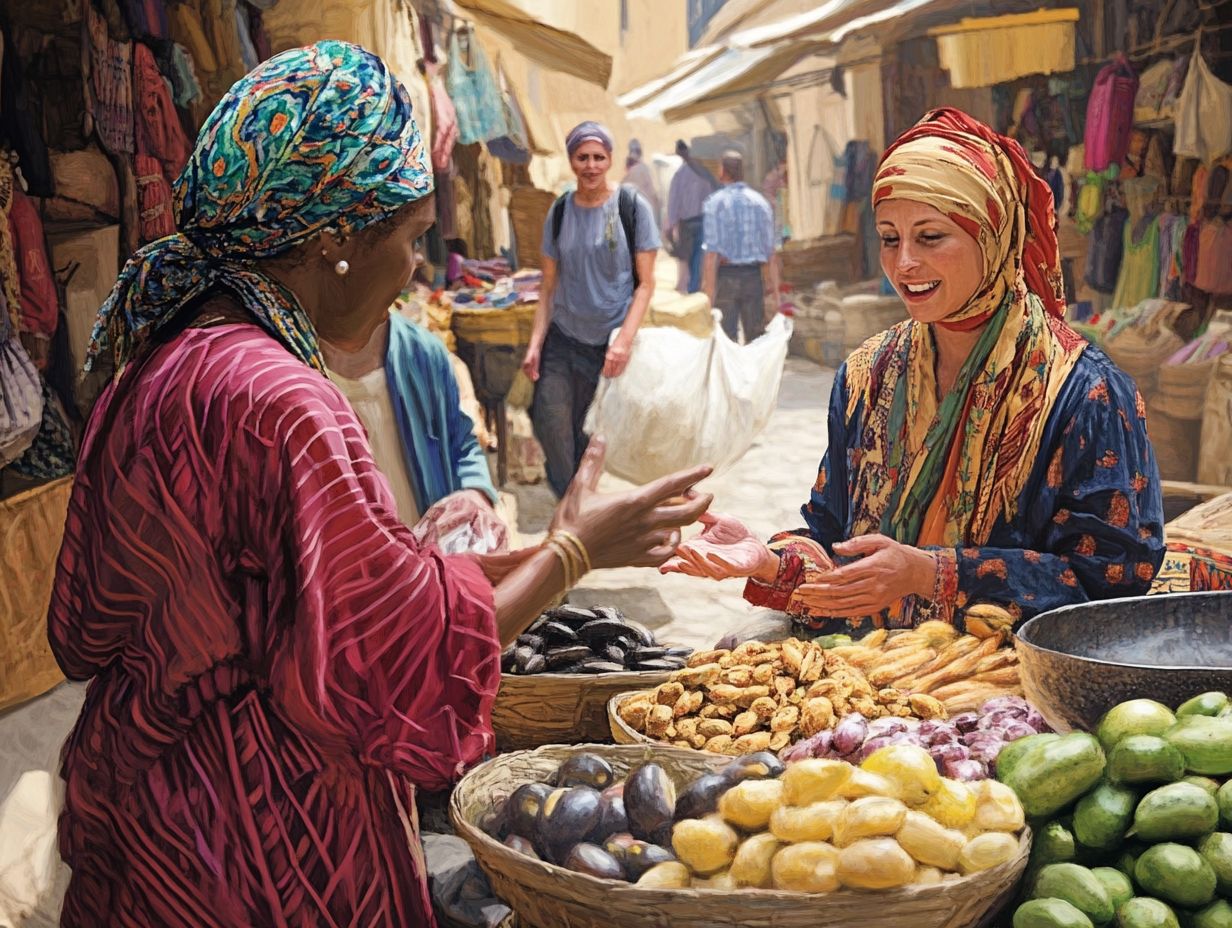
What is the importance of understanding cultural differences when traveling?
Understanding cultural differences is crucial for having a successful and enjoyable trip. It allows you to appreciate the country you are visiting, avoid cultural misunderstandings, and engage in meaningful interactions with locals.
How can I prepare for cultural differences before traveling?
Researching the customs and beliefs of your destination is a great way to prepare. Learning some basic phrases in the local language and familiarizing yourself with etiquette will also be helpful.
What are some common cultural differences I may encounter while traveling?
Common cultural differences include variations in greetings, gestures, food, dress, and communication styles. Each country has its unique culture, so it’s essential to be open-minded and respectful of these differences.
What are some ways to show respect for a country’s culture while traveling?
Showing respect can be as simple as learning key phrases in the local language, dressing appropriately, and following local customs. It s also important to remain open-minded and avoid imposing your cultural beliefs on others.
We invite you to share your own travel experiences or thoughts about cultural differences! Your stories could inspire fellow travelers.
How can I avoid offending locals with my behavior?
Be aware of the cultural practices in the country you’re visiting. Respect their body language and use appropriate words.
Avoid topics that might be seen as taboo. This will help you connect better with locals.
What should I do if I unintentionally offend someone while traveling?
If you accidentally offend someone, apologize sincerely. Understanding why your actions were hurtful can help you grow.
Show genuine remorse and a desire to learn. This approach can mend any misunderstandings and build bridges.

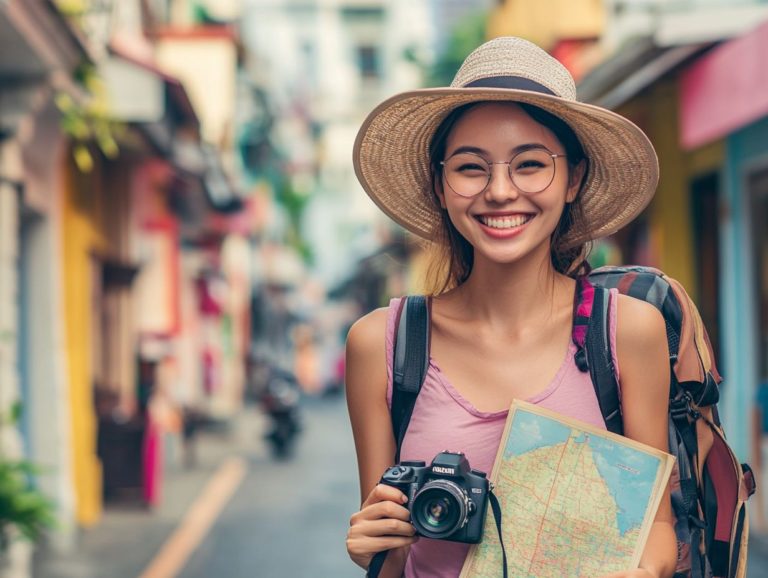
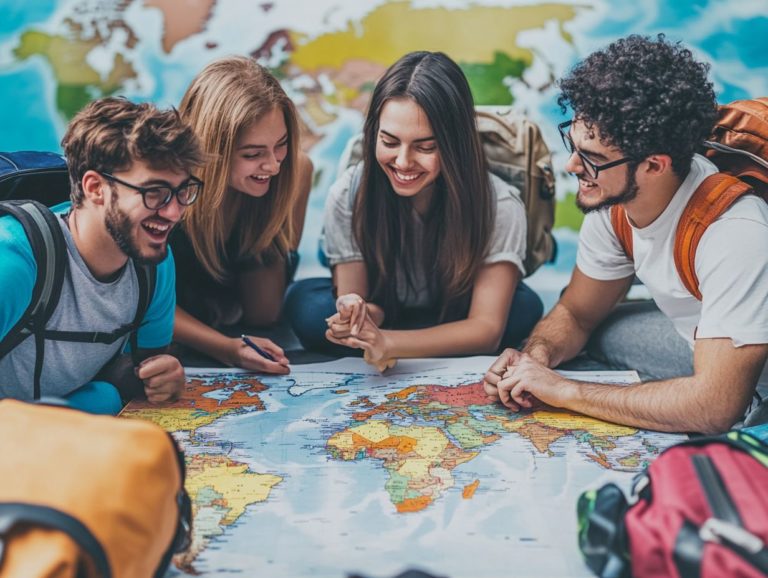
![5 Essential Travel Tips When Visiting [Local Area]](https://abroadfocus.com/wp-content/uploads/2024/09/5-essential-travel-tips-when-visiting-local-area-o5-768x578.jpeg)
